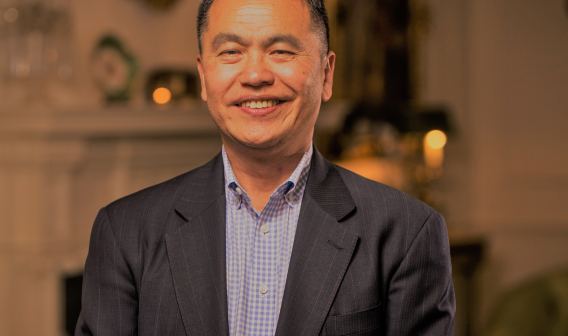We established Google Public Sector in 2022 as a separate subsidiary of Google. GPS has a core mission to really empower the public sector to accelerate digital transformation. This is about helping government agencies transform the way they deliver services to better serve their constituents using digital platforms. We deploy security solutions to make government platforms more secure and protect against cyberattacks.
We also very proudly serve educational and healthcare systems using our communication tools and our collaboration tools with our productivity suite, Google Workspace. It enables these systems to use data to improve their critical infrastructure. In so many ways, across federal, state, local, and educational institutions, we are bringing our technology to really help drive their missions in new and improved ways.
El Koubi: I’m really interested in hearing about where you are and where the public sector is in this transformation along the different dimensions that you just outlined. You are basically at your two-year mark now as CEO of Google Public Sector. Can you talk a little bit about the big challenges and where we are as a society in dealing with some of these transformations? What have been the key ingredients for you and your team at GPS as you help governments at every level take on some of these challenges?
Dahut: It’s such an exciting time to be at this intersection of technology and public sector mission. Generative AI has captured the imagination of citizens across the globe, and it has raised the awareness of what technology can do to enhance the lives of everyday citizens. It’s what energizes our teams at Google to be able to bring these technologies to bear.
I have had the opportunity to travel all across the country, meeting with local mayors, governors, state agencies, and federal leaders. What I hear, universally, is that they are ready to adopt and accelerate their digital transformation, and they don’t really know where to start. Part of what has been so exciting is to show them the way, how Google Cloud and AI can help them enhance their services and make sure that their technology is truly secure. But more importantly, deliver on their missions better, faster, and more efficiently.
I joined Google because for years I felt like I was integrating other people’s technology, and this gave me the opportunity to work with the world’s leading technology company to actually build mission, purpose, and technology.
El Koubi: What have you found to be the most useful tools for helping those public sector leaders, those organizations, both individually and at a larger scale?
Dahut: It’s a really good place to describe the environment I think we find ourselves in today as public sector leaders and people trying to serve the public sector. There are challenges that our public sector leaders face, including data silos, legacy IT, ambivalence about implementing new technology, bureaucratic red tape, a need to recruit the next generation workforce, and how to equip those serving now with the skills for AI and more. Google Public Sector is about bringing a world-class team and world-class technology to this mission.
Google has taken a very different approach to GovCloud. Many public sector agencies are running on less reliable, less feature-rich, fortressed versions of commercial clouds known as GovCloud. We’re certifying our entire U.S. Google Cloud infrastructure to be able to serve the public sector mission. And this was a strategic choice. We believe commercial cloud solutions provide superior functionality, flexibility, and security.
Speaking of security, our approach is also radically different. It is truly at the center of every product and every solution we build. We use encryption, software-defined networks, and zero-trust, a security model based on the idea that no person or device should be trusted by default, even if they are already inside an organization’s network, rather than physical separation. We adopted zero-trust over a decade ago as our security foundation for the entirety of the company, and we believe that this is the same approach that the government needs to embrace. We invented foundational concepts around zero-trust architectures, and it’s proven that this zero-trust architecture ensures that an individual with the right identity, with the right access authorized by the right code, is more secure than any other approach to security.
These are just a few areas. As you can probably tell, Jason, I could go on for hours on this.
El Koubi: Just before we started this conversation, I was texting with somebody else here in my state government organization after having gone through résumés saying, “Gosh, it’d be really nice if, instead of getting 25 résumés, I might’ve gotten an AI-generated spreadsheet.” I think people in organizations across the public sector and the private sector are asking similar questions right now. What role does artificial intelligence play in your internal operations and the capabilities and services that you’re delivering to your clients in the public sector? How do you see this evolving to serve different business needs? I’m interested in what’s happening at Google, but also, what do you see happening in the wider market?
Dahut: AI and machine learning have been employed by Google for years, from the very early days of the company. In fact, if you read some of our founding documents, you would see elements of AI and the possibilities of natural-language processing throughout. Our founders imagined the power of AI and its embedded capabilities into all of our products very early on in our journey. And it was in 2016, when Sundar Pichai, our current CEO of Alphabet and Google, said that Google is an AI-first company.
At a company level, we infuse transparent, responsible AI practices across all of our products, and it’s fully integrated into Search, YouTube, Maps, Workspace, and, of course, Google Cloud with Gemini and our Vertex AI stack. It’s fully embedded. We’re very proud of the work that we’ve done around our Google Distributed Cloud. We have digital watermarking that’s generally available for AI-generated images produced by Imagen, and we’ve expanded all of our grounding capabilities to make sure that we’re producing responsible outputs to AI and generative AI.
You also asked about what we’re seeing in the market. Your example of the résumés is a really good one. We’re seeing generative AI used to enhance productivity. I think about it as an always-on personal assistant to a public sector employee that allows them to work on higher-order work while their generative AI assistant does some of the more routine work for them. It also helps to use AI to automate processes that are more mundane in their execution.





